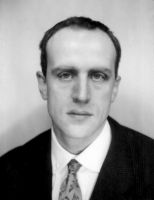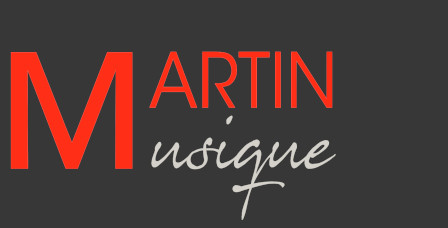Boris VIAN

Boris Vian (March 10, 1920, Ville d'Avray (Seine-et-Oise, now Hauts-de-Seine), France - June 23, 1959, Paris) was a French writer, an engineer from the Ecole Centrale, inventor , poet, songwriter, singer, critic and jazz musician (trumpet). In these multi-talented, should be added those of a speaker, writer and translator (Anglo American). He also published under the pseudonym Vernon Sullivan, Bison Ravi, Baron Visi or Brisavion (anagram of his name). Boris Vian was born March 10, 1920 in Ville d'Avray in the Hauts-de-Seine. His father Paul is the annuitant, his mother Yvonne is a pianist and harpist Ravenez amateur. His grandfather was Henry Vian bronze sculptor and founder [1], its stores were at 5 rue Thorigny in Paris, in the Hôtel Salé from the Picasso Museum. The older brother Boris, born October 17, 1918, called Lelio, there will be two other children after Boris, Alain born September 24, 1921, and Ninon was born September 15, 1924. At twelve, Boris is a victim of rheumatic fever, which causes aortic regurgitation. This disease of heart, which his works bear the trace, will make the target of affection from his mother too stifling. He will speak in L'Herbe rouge, and more in The Puller c ur. He attended primary school and high school in Sèvres (1927-1932), then the Lycée Hoche in Versailles, in the third class of Philosophy (1932-1936). Their education is often interrupted due to medical incidents. If it passes with ease the first part of BA in 1935, he was forced to follow one second terminal at the Lycee Condorcet in Paris, where he earned bachelor's A-final philosophy, with mathematics option. It follows the preparatory classes for scientific schools at the Lycee Condorcet and entered the Ecole Centrale Paris in 1939. At the end of his studies he worked as an engineer at the French Association for Standardization (AFNOR) [2] [3], from 1942 to 1946, where he enjoys his moment of freedom to write and play music jazz. He frequents the cafes of Saint Germain des Pres: Café de Flore or the Deux Magots, at the time when these bring artists and intellectuals of the Left Bank: Jean-Paul Sartre (the Jean Sol Partre of The foam of the day), Raymond Queneau, Simone de Beauvoir, Juliette Greco, Marcel Mouloudji or Miles Davis. His first famous novel (under the heteronymous Vernon Sullivan) is I Spit on Your Grave, written in 1946. The novel is very controversial, partly because it is found at the scene of a crime of passion. Boris Vian was sentenced in 1950 for indecent w alls. Ensuing novels just as black and sarcastic: The dead have all the same skin, And we will kill all ugly and they not realize. If successful works, signed Vernon Sullivan, Vian allowed to live, they have also obscured the novels signed his real name, most important works in his eyes. According to him, only they had a real literary value. After the failure of The Puller c ur, he decided to abandon literature. Jazz enthusiast, he plays the pocket trumpet (renamed "trompinette") at Taboo, Club Saint-Germain-des-Pres. He is also artistic director and columnist at Philips Jazz Hot from December 1947 to July 1958, where he holds a "media review" explosive and extravagant. Henry Rollins said of him: "He was a lover of jazz, lived only for jazz, heard, spoke only jazz". 1951 and 1952 will be bleak for years Boris Vian. He just left his wife Michelle Léglise, he had two children, Patrick in 1942 and Carole in 1948 and lives in a difficult translations maid's room, at 8 Boulevard de Clichy. He no longer has any money but the tax is bent on eliciting old taxes that can not pay. His fertile mind, however, brings the work to the College of 'Pataphysics (the science of imaginary solutions), founded in 1948. He finds Raymond Queneau and knacker was appointed first class in 1952, then satrap in May 1953. Corporation in that kind, he gives free rein to his imagination to provide communications and inventions such as the Baroque or gidouillographe pianocktail [Note 1]. In 1954, he married Ursula Kübler. He appeared on stage, theater and some films. He plays the cardinal example of Paris in Notre-Dame de Paris by Jean Delannoy. On the morning of June 23, 1959, Boris Vian attends the premiere of I Spit on Your Grave, a film based on the novel. He has already fought the producers, sure of their interpretation of his work, and publicly denounced the film, saying he wanted to remove his name from the credits. A few minutes into the film, he collapsed in his seat and died of a heart attack en route to hospital. The College of 'Pataphysics announces the apparent death of "Transcendent Satrap". His book was a huge public success posthumously in the 1960s and 1970s, notably during the events of May 68. The youth of the new generation rediscovering Vian, the eternal adolescent, in which they find themselves. Google machine translation: Boris VIAN's original bio |
 |
| ||
| Boris VIAN Arr : Jérome NAULAIS Publisher : Robert Martin Genre : Orchestra Group : Wind band Style & options : French light music |
Set Wind Band (VIAN02780-BA) : € 198,25 Full score (VIAN02780-CO) : € 44,73 |
||
